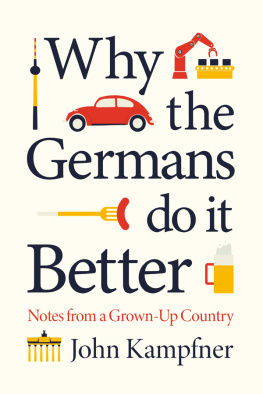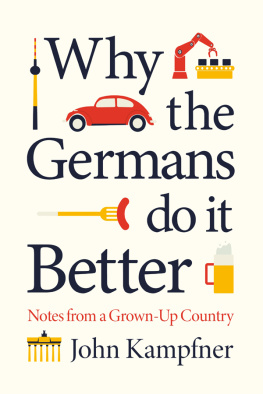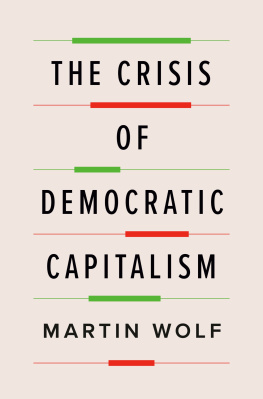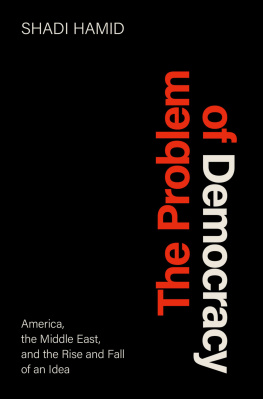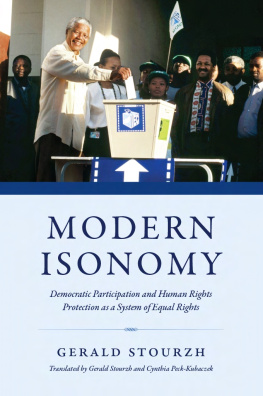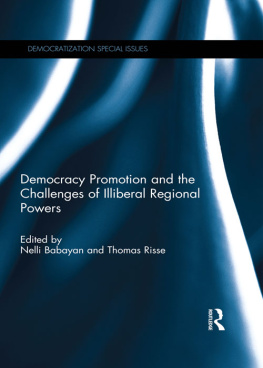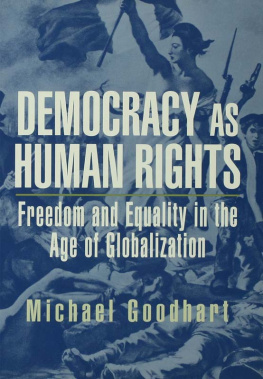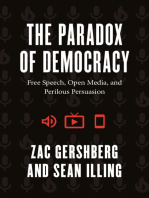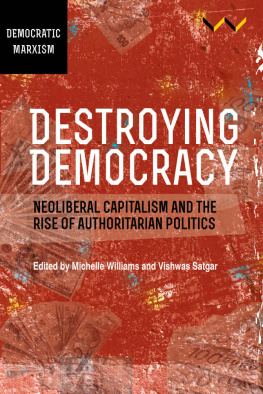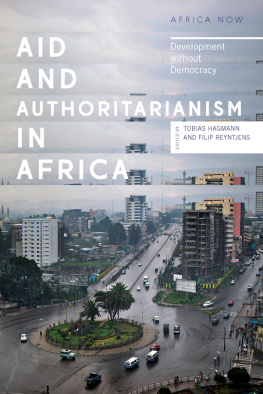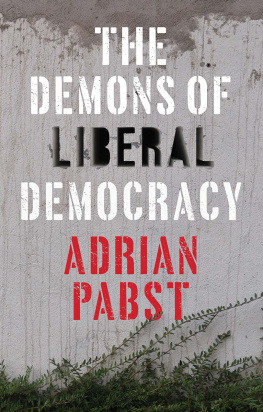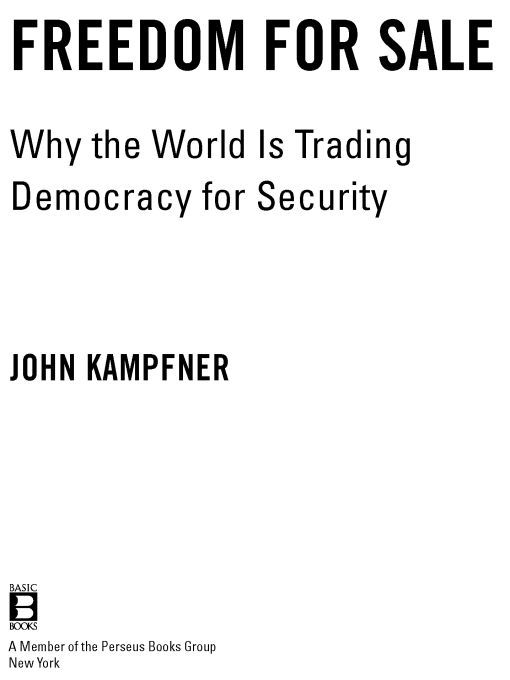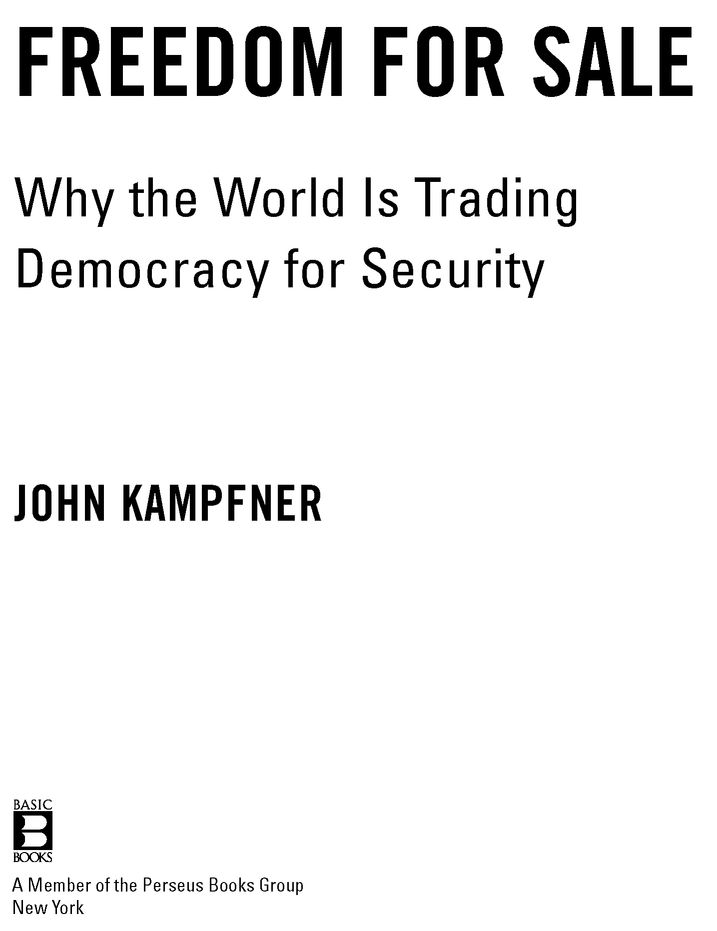Table of Contents
ALSO BY JOHN KAMPFNER
Blairs Wars
To Constance, Alex, and Lucy
Introduction
Why is it that so many people around the world appear willing to give up freedoms in return for either security or prosperity? From John Stuart Mill to Jeremy Bentham, from Sigmund Freud to Franklin Roosevelt, various thinkers have posed this question through the generations. Invariably we are told that it is obvious that freedom is the higher good, and that those who choose otherwise are being deceived. Those who would give up essential liberty to purchase a little temporary safety deserve neither liberty nor safety, declared Benjamin Franklin in 1755.
If only it were that simple. During the first part of my journalistic career, in the 1980s, I spent a lot of time in the former Soviet Union and in other countries that were generally described as dictatorships. Freedom of expression, freedom of movement, and freedom of association were heavily curtailed. Although these restrictions varied from country to country and from regime to regime, they always affected peoples day-to-day lives. The lack of private freedoms was as problematic as the more politically charged restrictions on the press and politics. Citizens could not decide for themselves where to live, what to buy, and in some cases, even what relationships to enter into. The dividing lines with the West, with democracies, no matter how imperfect, were clear.
Having witnessed the fall of the Berlin Wall and the collapse of the USSR firsthand, I have been struck by the changes in the lives of some of the people I knew who lived through these momentous times. I remember spending the evening of December 25, 1991, in the company of Lev Kerbel, a much-decorated sculptor, in his Moscow studio, its every inch of wall space occupied by a model of a Soviet hero. Kerbel was uncertain about the future as we sat before the small, flickering TV, watching as the Soviet flag that had waved atop the dome of the Kremlin for decades came down, and the tricolor of the new Russia took its place. A proud and sprightly man, his demeanor belying his age, Kerbel had been born on the day of the Bolshevik revolution in 1917. During his long career he had made a name for himself creating giant monuments to Lenin and Marx from Prague to Pyongyang. I had first met him in the autumn of 1985, just as his last great offering to the people of Moscowthe marble and granite monument to Lenin dominating October Squarewas being unveiled. Now, six years later, the floor space of his studio was crammed with Lenins and Marxes, along with a Stalin lying in state, Italian Communists, Bashkirian poets, composers, soldiers, and female collective farm workers with headscarves. The wall in his kitchen had become a visitors book, and I added my signature. When I returned many years later, I saw that Boris Yeltsin had signed his name close to mine.
Over tea and brandy, Kerbel reminisced about a system to which he and millions of others had grown accustomed. For more than thirty years, the system had provided security and stability for the vast majority of a people who did not have the consumer expectations of their counterparts in the West. All they needed to do to enjoy a quiet life was to keep their heads down, to avoid causing trouble. Kerbel did more than that. He became one of the public faces of the Soviet Union. Despite his fears about the new way of living after the collapse of the Soviet Union, over the coming months he settled into the new world of the rynok, the market, with reasonable ease. He learned about commercial contracts and started producing sculptures for the new generation of oligarchs, either of themselves or of their wives or mistresses. His daughters began to work for American television, and Lev went on holiday to the Canary Islands.
The battle between liberalism and autocracy that had split Europe apart in the twentieth century, part of an enduring ideological divide that had grown out of the Enlightenment, had been won. Francis Fukuyama, the U.S.-based author who initially seemed to personify the optimism of the new globalized world, predicted that the end of the Cold War and the collapse of communism would lead to the end of history and the universalisation of Western liberal democracy as the final form of human government. Although Fukuyamas argument was complex, for more than a decade the debate about democracy and democratization was reduced to a simple matrix. Throughout this period it was assumed that freedom, liberty, and human rights were intertwined with democracy, and that democracy was inextricably linked to the free market. They not only thrived together, but they needed each other to survive.
The Wests victory in the Cold War appeared to confirm the supremacy of both its ideology and its business model. As Margaret Thatcher had once said, it did not matter whether you started with political freedom or economic freedom: You would end up sooner or later with both. Thatcher was tapping into a rich vein of Anglo-Saxon thinking that saw free markets and liberal democracy as mutually reinforcing. Capitalism is compatible only with democracy, wrote the American Christian social theorist Michael Novak in 1982. While bastard forms of capitalism do seem able for a time to endure without democracy, the natural logic of capitalism leads to democracy. Under communism, neither the Soviet Union, nor China, nor their satellites had posed an economic threat, let alone a meaningful ideological one, to the West. The assumption was that post-Communist Russia and China would move warmly into the Wests economic and political embrace.
The number of countries embracing multiparty elections and other facets of democracy had already begun to increase. By the time the third wave of democratization began in 1974 in Portugal, barely a quarter of the worlds states met the minimal test of a democracy: to be a place where the people were able, through universal suffrage, to choose and replace their leaders in regular, free, and fair elections. Over the course of the next two decades, dictatorships gave way to freely elected governments in southern Europe, Latin America, and East Asia. Finally, an explosion of freedom in the early 1990s liberated Eastern Europe and spread democracy from Moscow to Pretoria. This shift coincided with an unprecedented moment of U.S. military, economic, and cultural dominance. Arguably, the movement reached its peak in June 2000 at the first meeting, in Warsaw, of the grandly titled Community of Democracies, spearheaded by the administration of U.S. president Bill Clinton. There, 106 states, including some as disparate as Chile, the Czech Republic, India, Mali, Portugal, and South Korea, vowed to respect and uphold core democratic principles and practices of free and fair elections, freedom of speech and expression, equal access to education, rule of law, and freedom of peaceful assembly.
Representative democracy expanded rapidly after that evening I spent with Lev Kerbel in 1991; by 2000, 120 out of the 192 nation-states of the UN could broadly be defined as democratic. For the first time in modern history, democracy had acquired majority status in the world. Yet, as Paul Ginsborg, professor of contemporary European history at the University of Florence, has pointed out, at the very time it appeared to be dominant, liberal democracy had actually entered a profound crisis. This was not a crisis of


